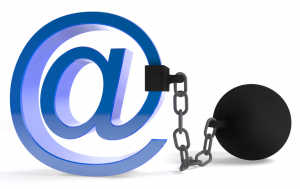Under Threat Of Being Blocked Google, Facebook Comply With India’s New Internet Censorship Rules
After China and the US, India is the third largest internet market in the world. But India has philosophically aligned itself more with China in pursuing a policy of censorship toward publication of content deemed “offensive” or “objectionable” by individuals, groups or the government. A recently enacted law seeks to remove all such content from […]
 After China and the US, India is the third largest internet market in the world. But India has philosophically aligned itself more with China in pursuing a policy of censorship toward publication of content deemed “offensive” or “objectionable” by individuals, groups or the government.
After China and the US, India is the third largest internet market in the world. But India has philosophically aligned itself more with China in pursuing a policy of censorship toward publication of content deemed “offensive” or “objectionable” by individuals, groups or the government.
A recently enacted law seeks to remove all such content from the internet in India. Facebook, Google, Yahoo and Microsoft were sued under the law and had been arguing in Indian court that it was all but impossible for them to comply as a practical matter. The law makes online publishers potentially liable for the acts of individual users and third parties (think “offensive” blog hosted on Blogger or “objectionable” video uploaded to YouTube).
According to a BBC report Indian Communications Minister Kapil Sibal said the following in December about the desired impact of the new law:
My aim is that insulting material never gets uploaded. We will evolve guidelines and mechanisms to deal with the issue. [The companies] will have to give us the data, where these images are being uploaded and who is doing it.
Google, Facebook and others had argued that they had no control over individuals and should not be held liable for their conduct accordingly. They said they cannot “pre-filter” material generated by millions of users. This is what would be called a “prior restraint” against free speech in the US.
Indian courts have been unsympathetic and demanded that the companies comply or be blocked entirely “like in China.” The BBC says that the companies have now complied and removed offending material at issue in a particular civil lawsuit.
However the overly vague nature of the statute on which these claims are based almost guarantees that Google, Yahoo, Facebook, Microsoft and other online publishers in India will face a steady stream of litigation from individuals or groups “offended” by this or that image, article or video.
Stock image used under license from Shutterstock
Related Entries
Contributing authors are invited to create content for Search Engine Land and are chosen for their expertise and contribution to the search community. Our contributors work under the oversight of the editorial staff and contributions are checked for quality and relevance to our readers. The opinions they express are their own.
Related stories
New on Search Engine Land